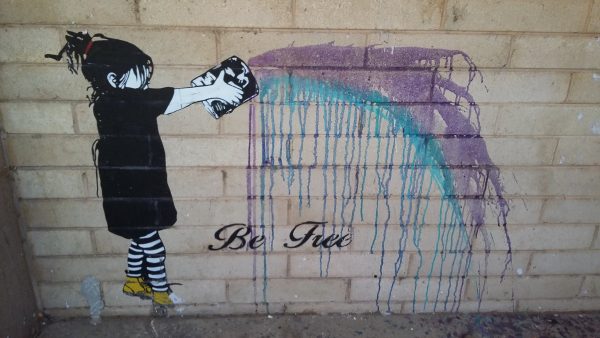
Doing a Creative PhD – Things to Think About
In 2013 I completed my PhD by artefact and exegesis, submitting a young adult novel and a thesis. During and after that time I have had extensive contact with other students of creative PhDs. I’m on a facebook group where people sometimes ask about signing up to do one of these. The response is always overwhelmingly positive – people encourage others to go ahead and apply. From my perspective, I am really pleased I obtained my PhD, but I believe anyone starting the ‘journey’ should have their eyes wide open. So this post discusses some things to be aware of.
The University Context
Probably the biggest factor at the moment for creative PhDs is that the university sector is being squeezed financially. And of course, like the broader social arena, the arts is always one of the first areas to lose funding. Potentially this might mean less funds available for going to conferences, less time allocation for supervisors to provide support during candidacy (so less face to face meetings) and less availability of other support (scholarships, research skills training etc.).
I had a conversation with a Visual Arts student recently on the day she discovered her supervisor had been made redundant. She was told there was no other potential supervisor on the horizon in the immediate future and was rightly devastated. Doing a PhD requires a lot of support. It’s hard to see how far these cuts are going to go, but one of the safeguards that can be put in place is to establish really good support networks with other students. Then if cuts do impact, you’ll at least have others to turn to who understand.
Your Goals
Be really clear about why you want to do the PhD. If it is to find a job in academia, see point 1! The traditional pathway of PhD to tutoring to lecturing to academic security is not a given any more. If this is your aim, it would be wise during your candidature to publish as much as possible, to develop excellent links to established academics who might be willing to mentor you, and to volunteer to help out with journals, conferences etc. Show that you have a lot to offer. If you are doing the PhD because a scholarship is more income than a writer normally receives in a year and you don’t intend to become an academic, that’s fine – but see point 3! The point is, be clear about your expectations before you go in.
The Supervision Process versus Your Writing Process
Creative writing (and other creative arts) for a PhD is different to writing outside the university sector because you are subject to ‘The Gaze’. Whatever you write will be scrutinised closely to ensure it reaches PhD standard*. The ethics process can also impact. This means your project may be more collaborative than you are used to. For me aspects of the ethics process meant I had to entirely re-shape my novel.
For others, a supervisors’ input meant they took their writing in directions they were not initially keen on. Whilst this is akin to working with an editor, it can happen much earlier in the process than usual. Prior to my PhD I never showed my writing to others until I’d reached at least draft 3. However, during the PhD a supervisor wants to see that you are producing work, and may well want to see a first draft. Finding a supervisor you can communicate with is really important to find your way through all of this.
Creative Writing Versus Academic Writing
Your preferred emphasis and the university’s might not be the same. On paper a creative PhD is (depending on the uni) 70% creative project and 30% academic text. In practice, this is often reversed. Creative artists coming in are highly skilled and experienced at their arts practice, but usually less so on academic writing. It can be a shock to realise there is a huge expectation that you will spend the majority of your time on the academic work. Supervisors need to be sure you will tick all the boxes in terms of getting research and thesis chapters written. Friends of mine have (to their horror!) been told to put their novel aside for months whilst they focus on the academic text.
Do Your Research….
The best way to go into the PhD with your eyes wide open is to have some really good conversations with others who have gone through it, and with your potential supervisor to really sort out expectations. Good luck!
*PhD standard may be very different to publication standard!